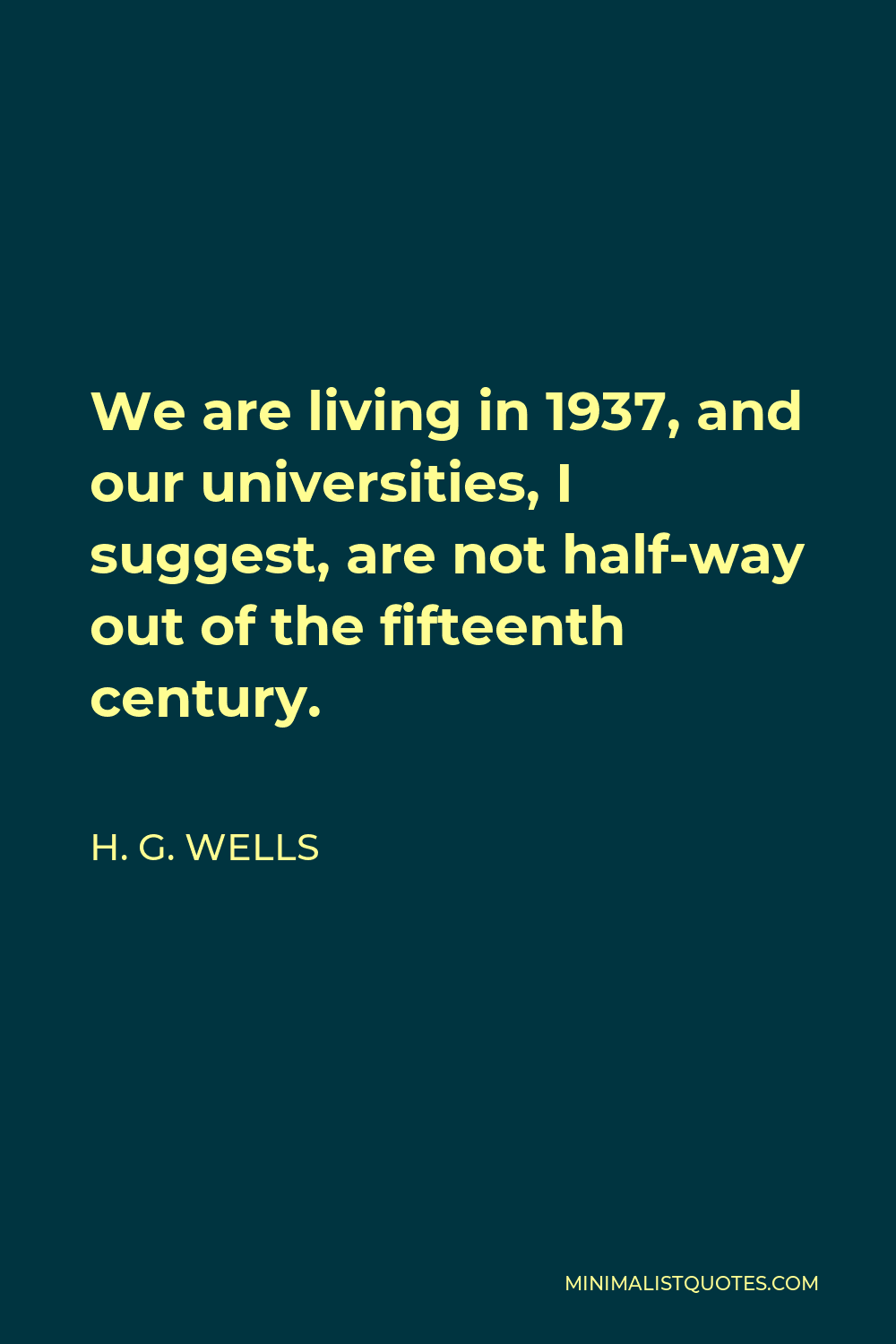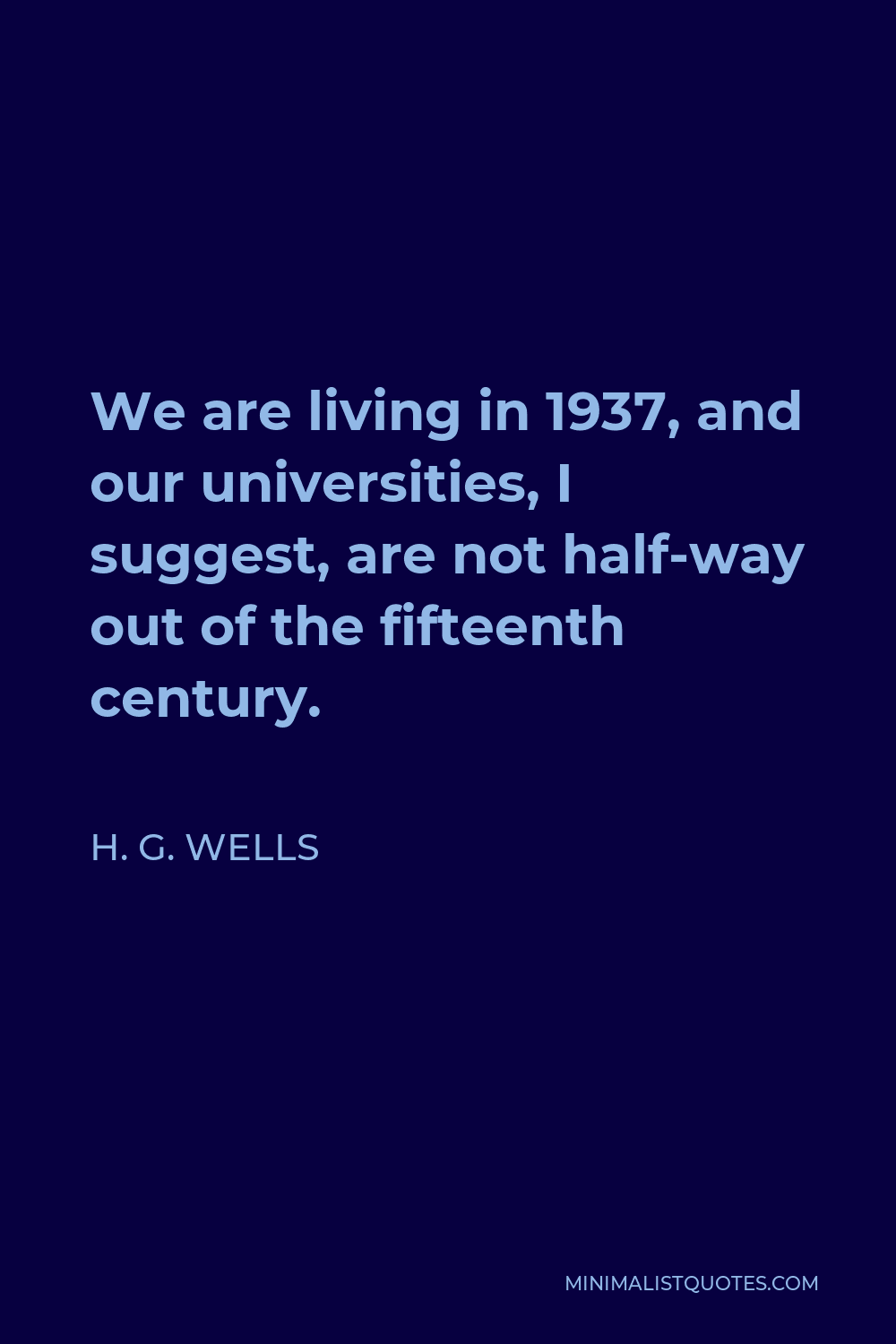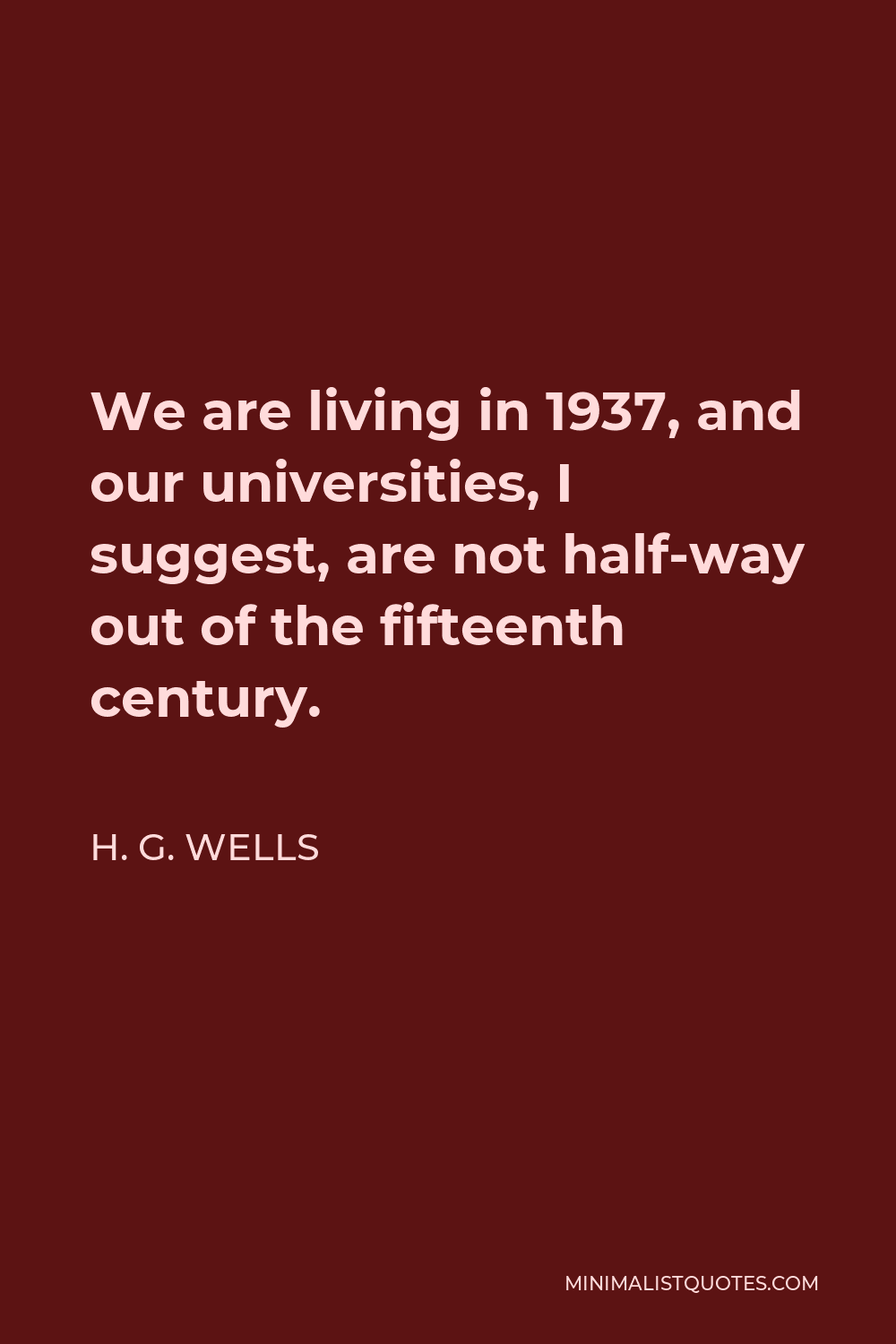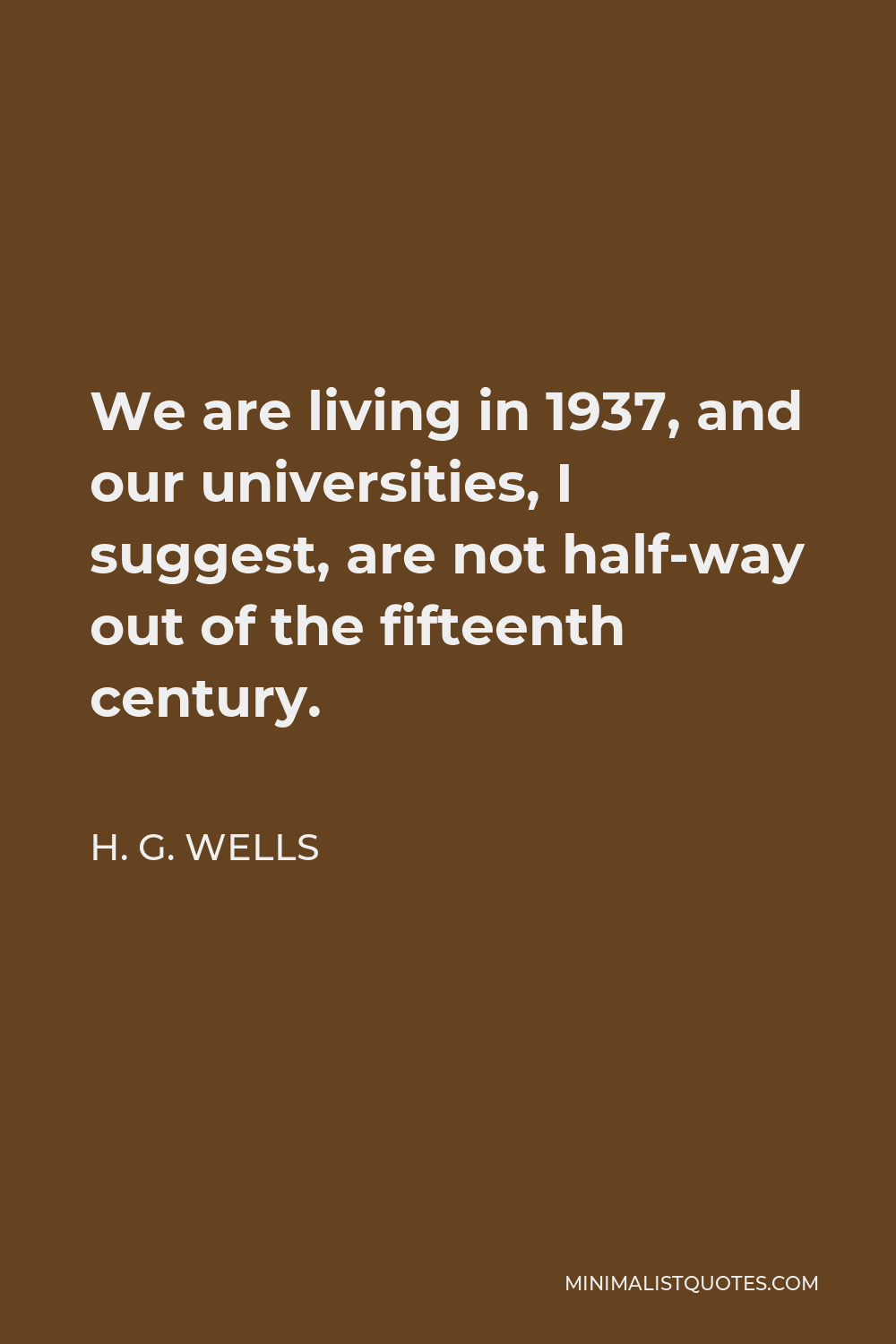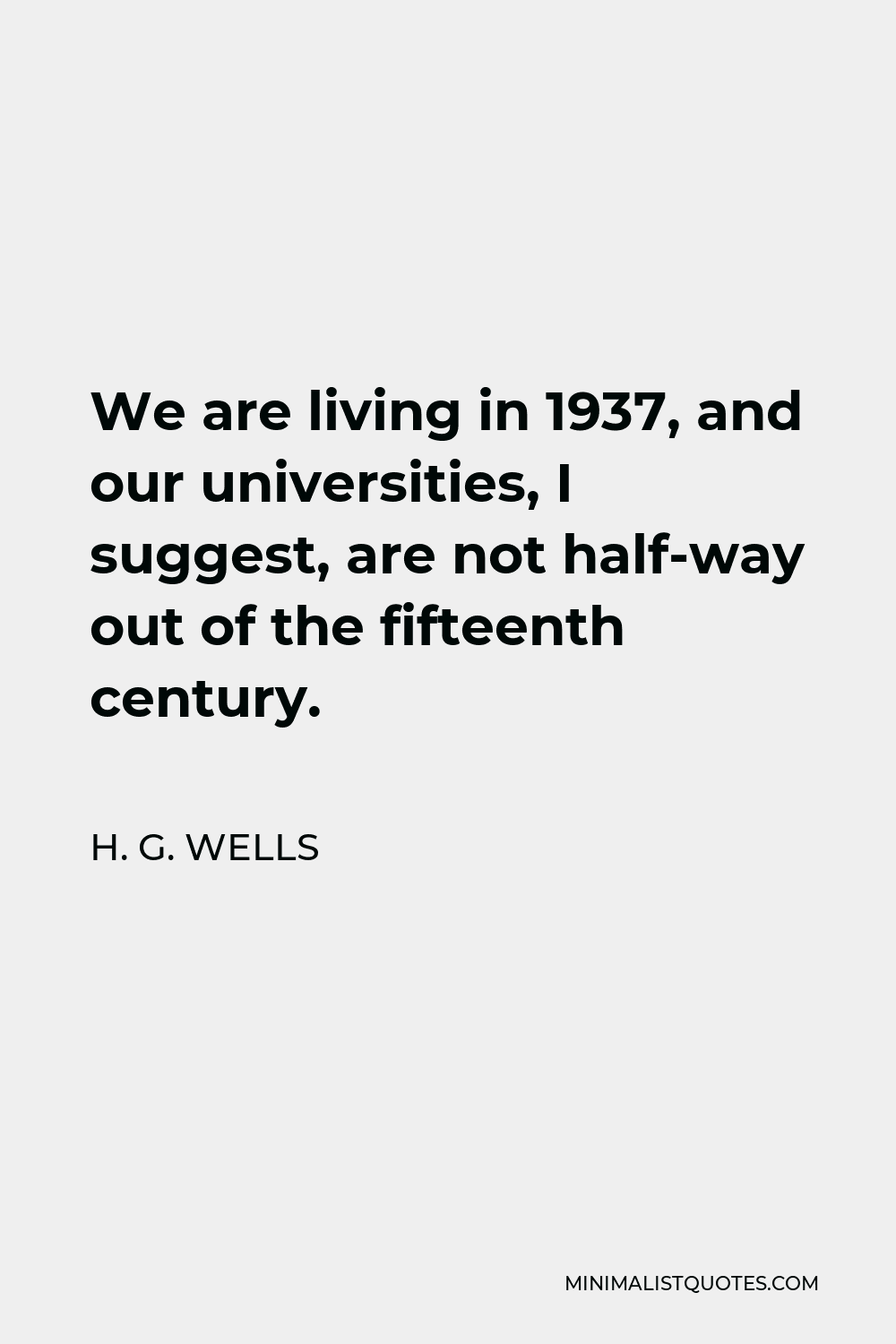It is not reasonable that those who gamble with men’s lives should not pay with their own.
H. G. WELLSWe are living in 1937, and our universities, I suggest, are not half-way out of the fifteenth century.
More H. G. Wells Quotes
-





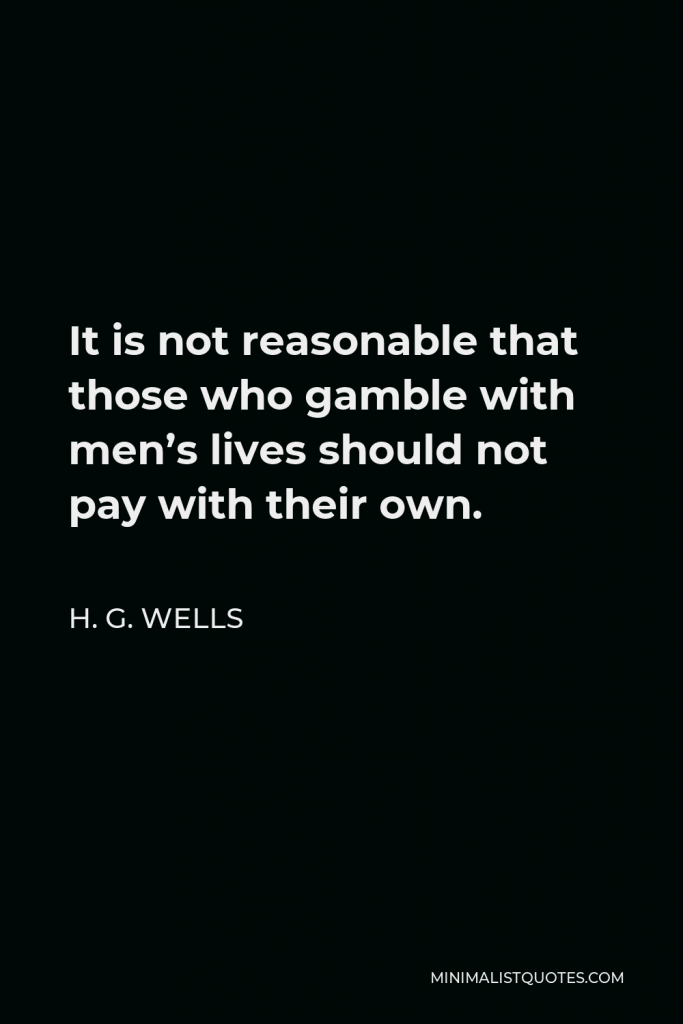

-





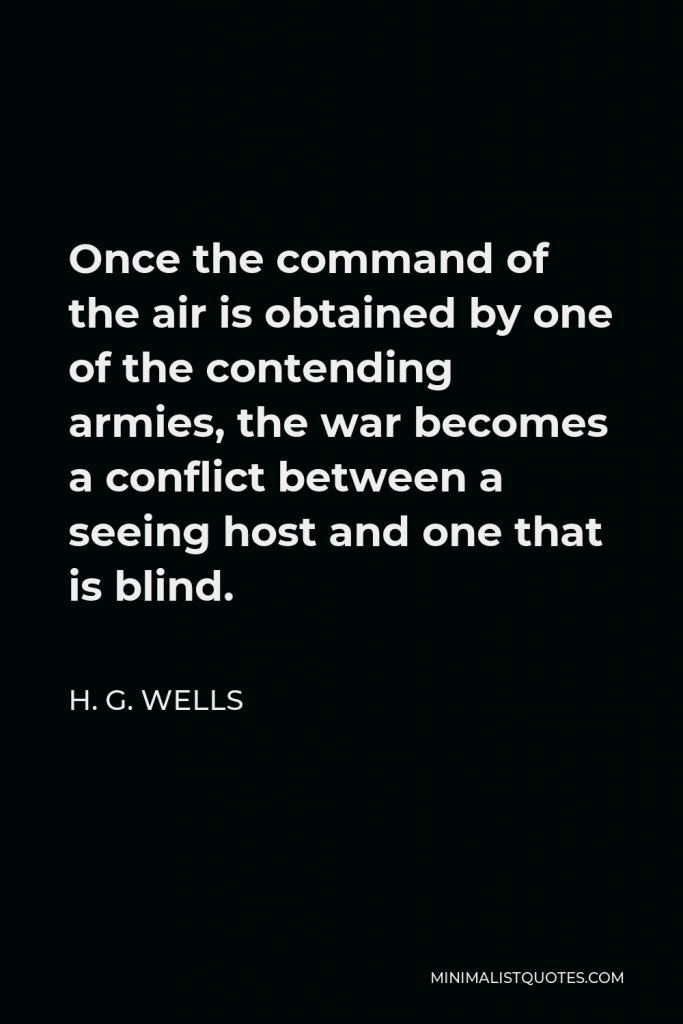

Once the command of the air is obtained by one of the contending armies, the war becomes a conflict between a seeing host and one that is blind.
H. G. WELLS -





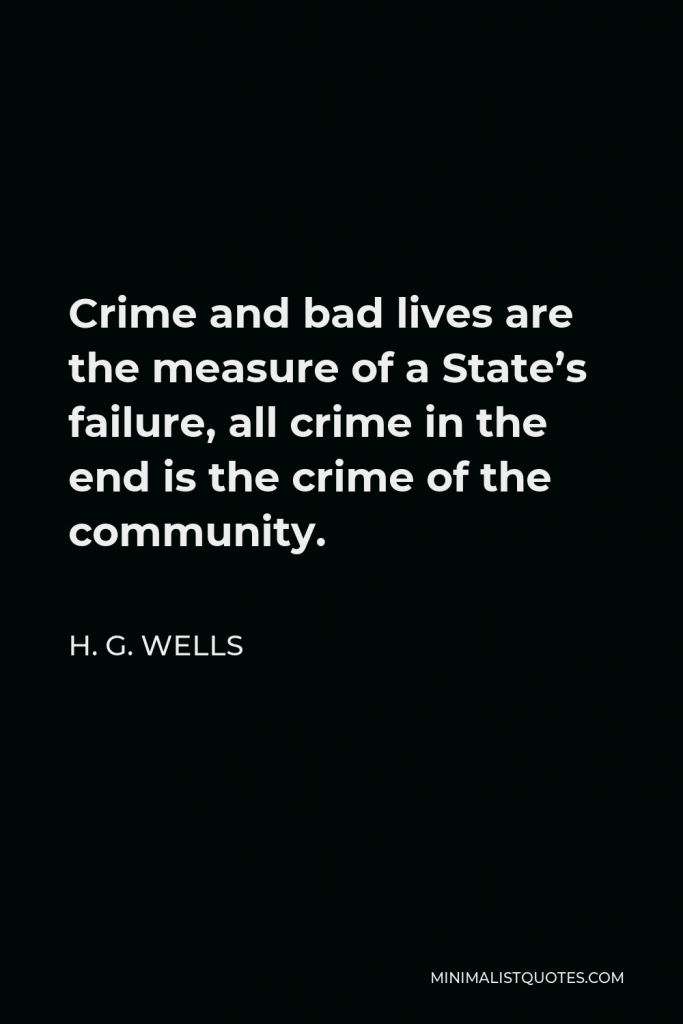

Crime and bad lives are the measure of a State’s failure, all crime in the end is the crime of the community.
H. G. WELLS -





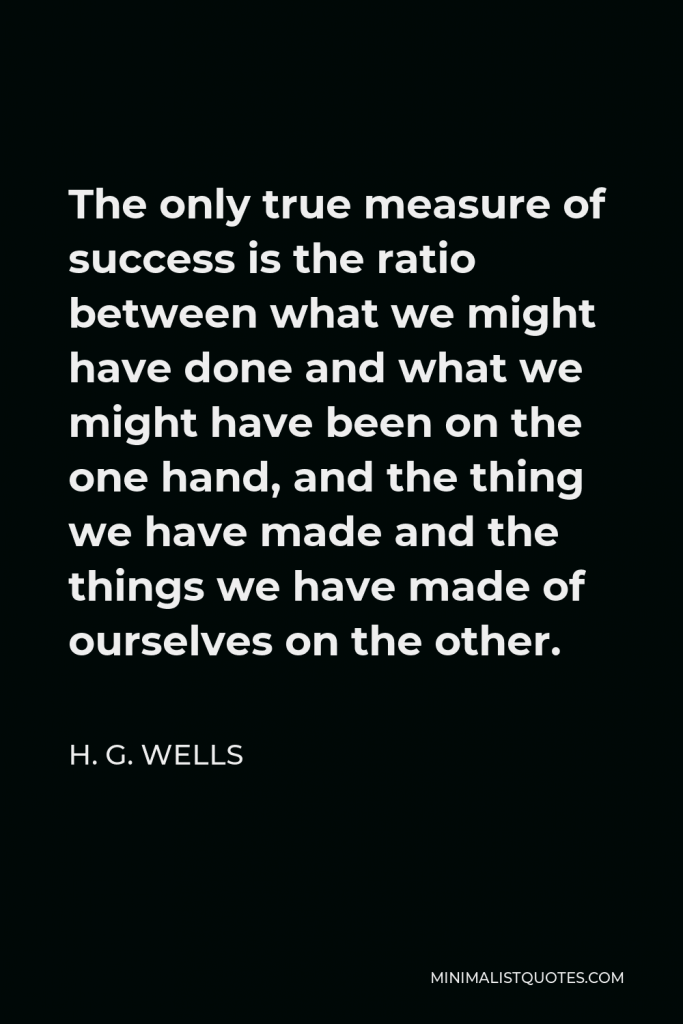

The only true measure of success is the ratio between what we might have done and what we might have been on the one hand, and the thing we have made and the things we have made of ourselves on the other.
H. G. WELLS -





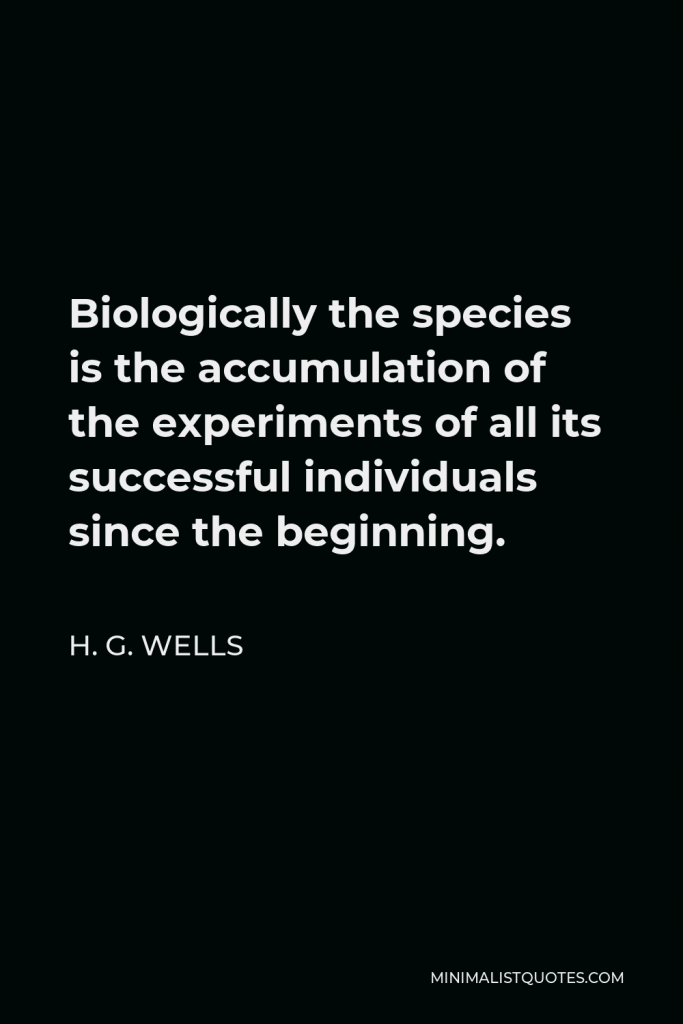

Biologically the species is the accumulation of the experiments of all its successful individuals since the beginning.
H. G. WELLS -





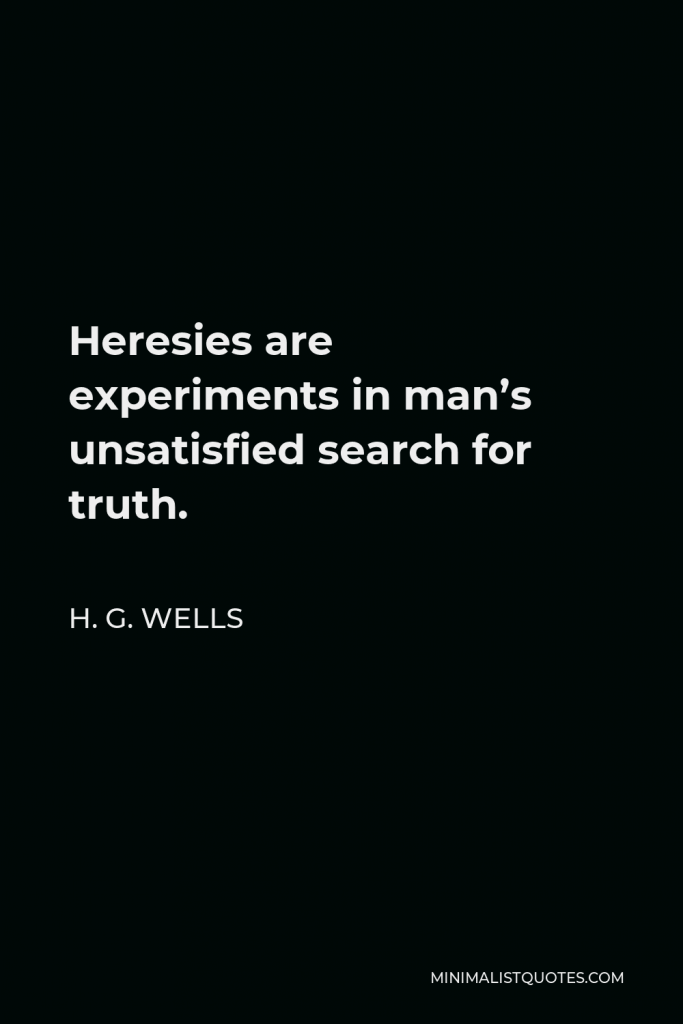

Heresies are experiments in man’s unsatisfied search for truth.
H. G. WELLS -





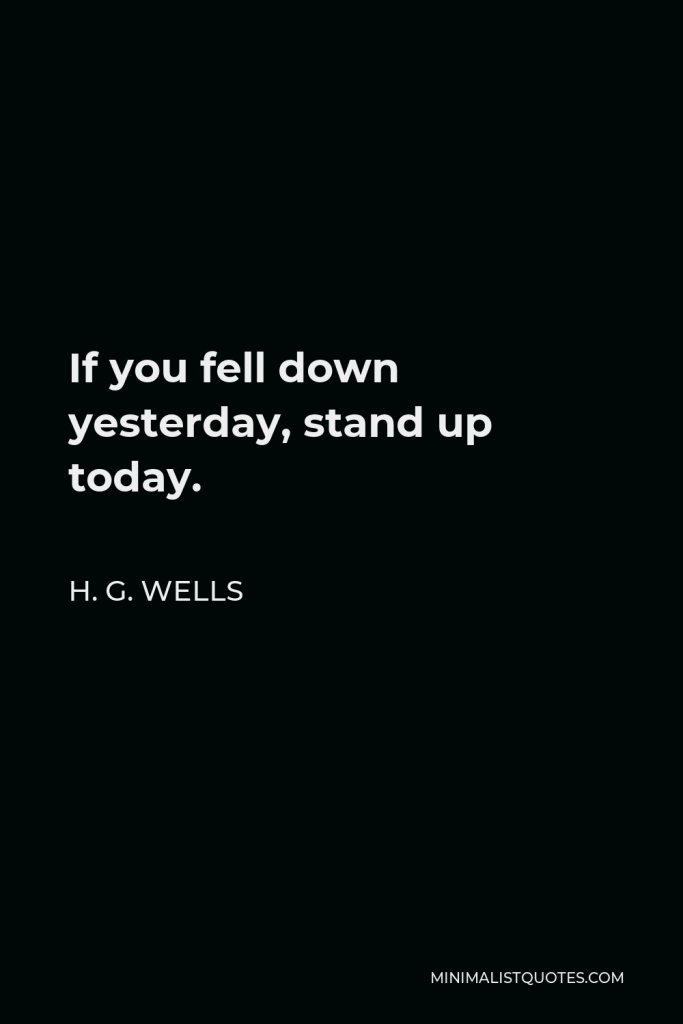

If you fell down yesterday, stand up today.
H. G. WELLS -







The New Deal is plainly an attempt to achieve a working socialism and avert a social collapse in America; it is extraordinarily parallel to the successive ‘policies’ and ‘Plans’ of the Russian experiment. Americans shirk the word ‘socialism’, but what else can one call it?
H. G. WELLS -





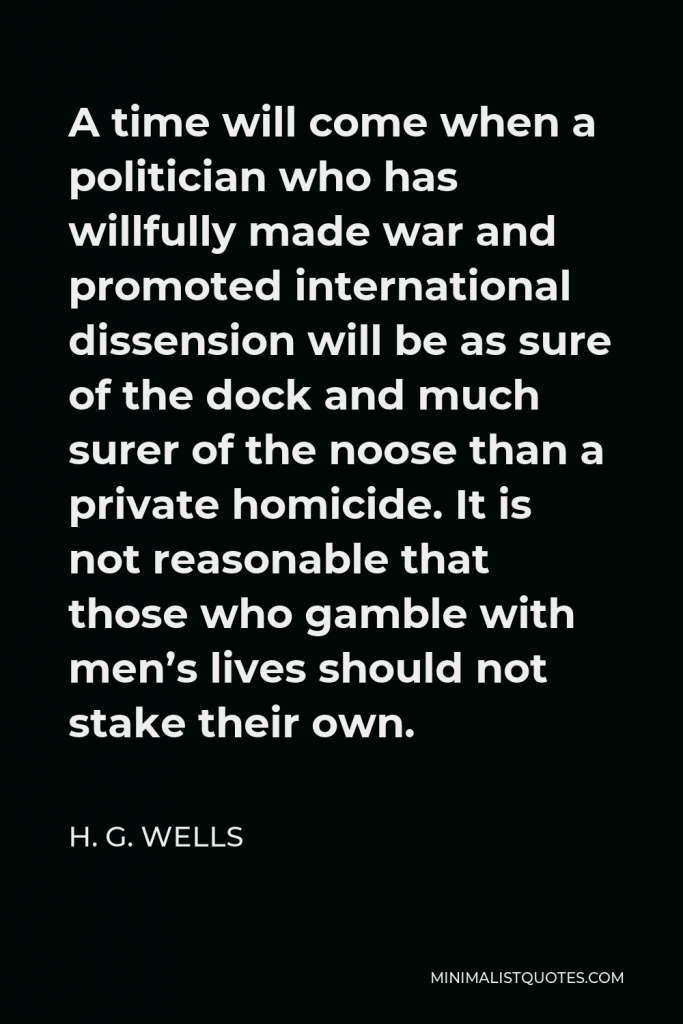

A time will come when a politician who has willfully made war and promoted international dissension will be as sure of the dock and much surer of the noose than a private homicide. It is not reasonable that those who gamble with men’s lives should not stake their own.
H. G. WELLS -





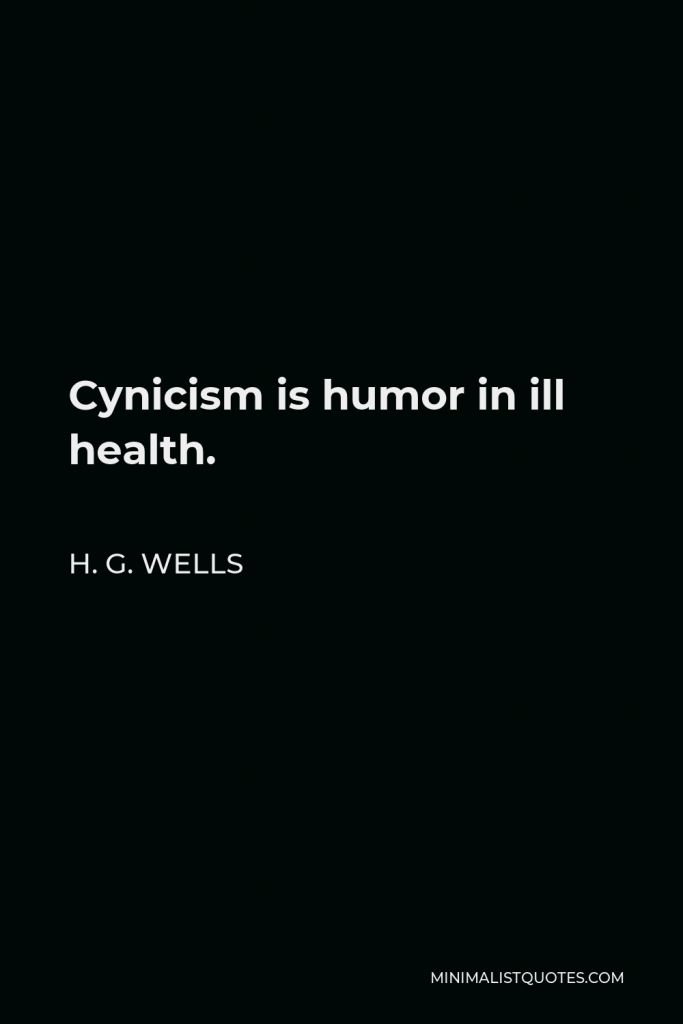

Cynicism is humor in ill health.
H. G. WELLS -







Moral indignation is jealousy with a halo.
H. G. WELLS -





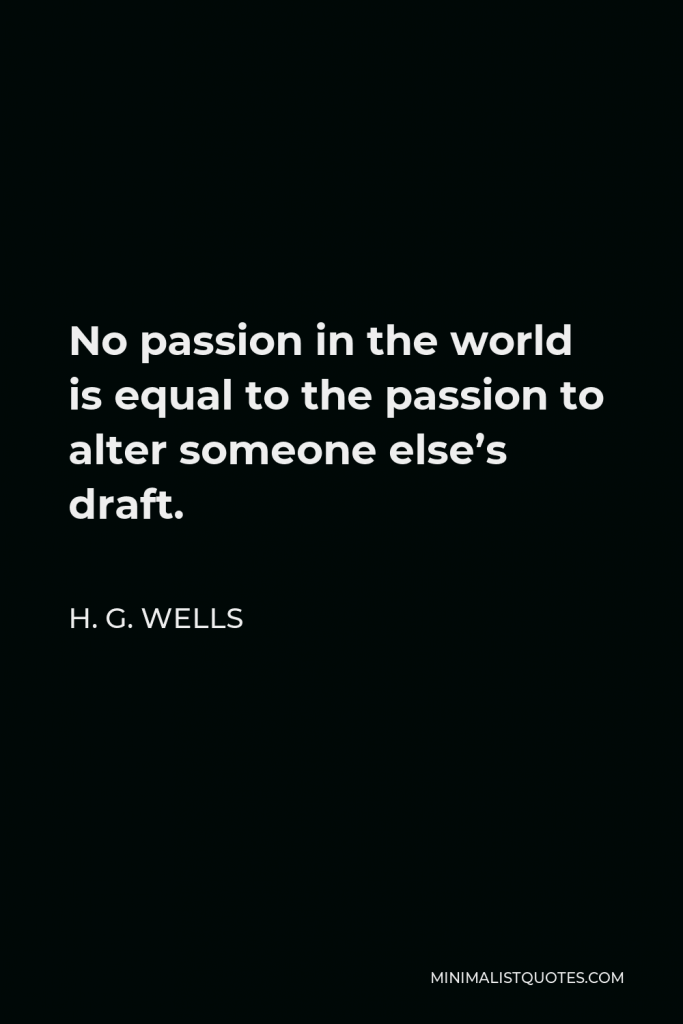

No passion in the world is equal to the passion to alter someone else’s draft.
H. G. WELLS -







I had rather be called a journalist than an artist.
H. G. WELLS -





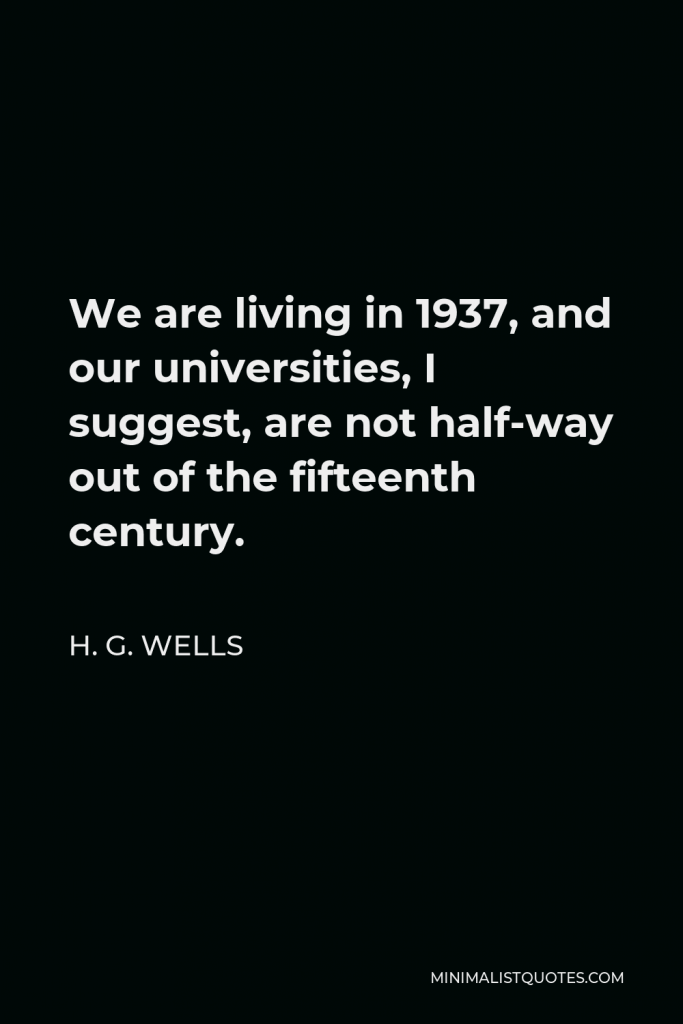

We are living in 1937, and our universities, I suggest, are not half-way out of the fifteenth century.
H. G. WELLS -





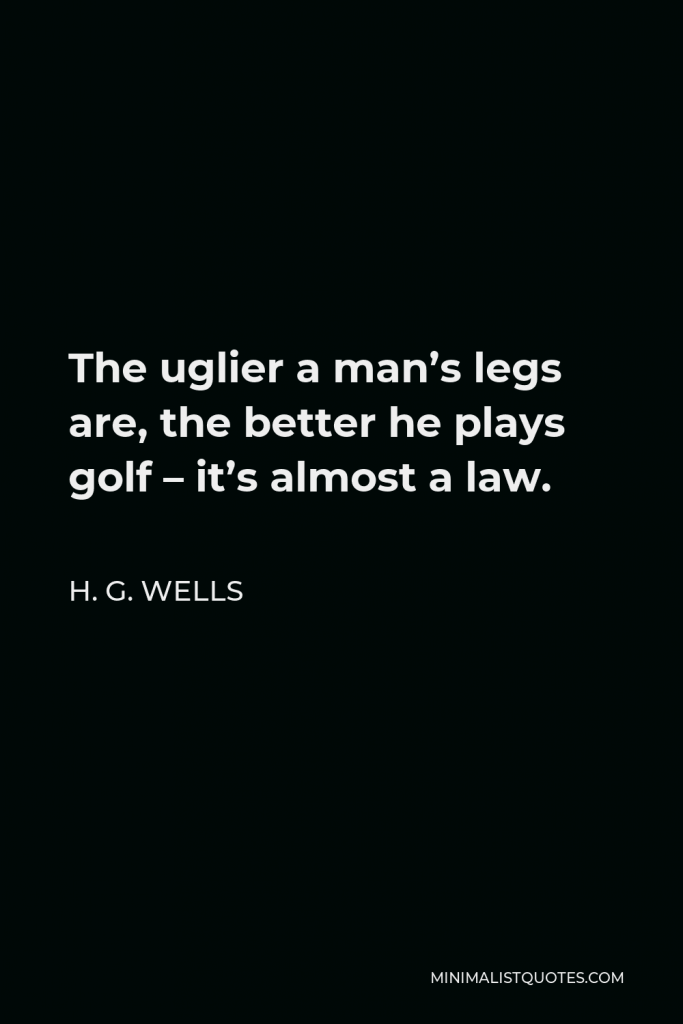

The uglier a man’s legs are, the better he plays golf – it’s almost a law.
H. G. WELLS -





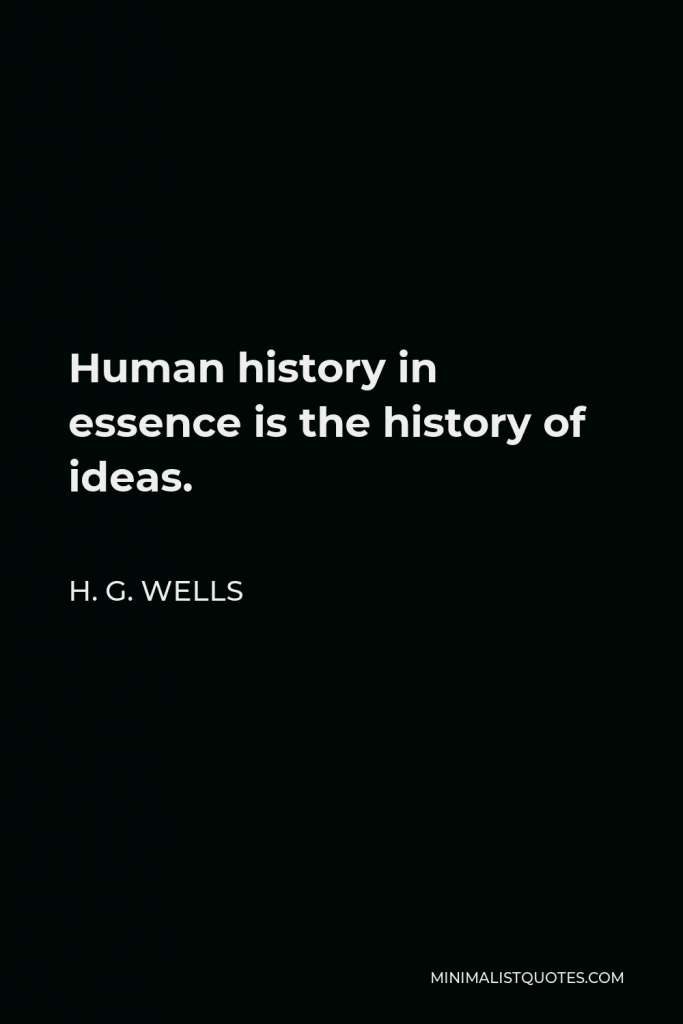

Human history in essence is the history of ideas.
H. G. WELLS

